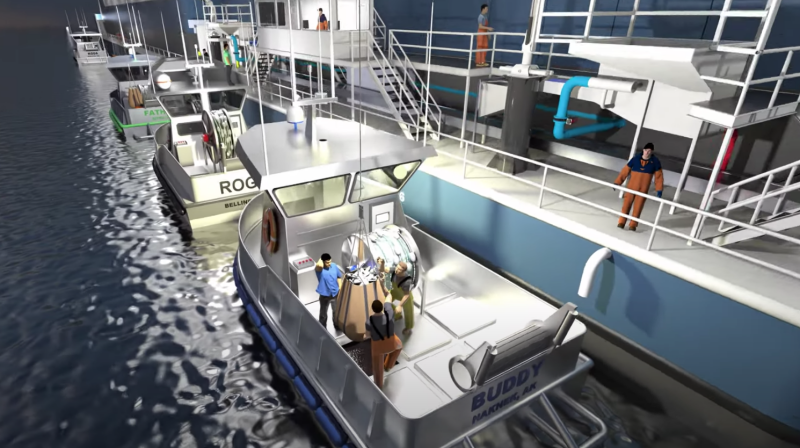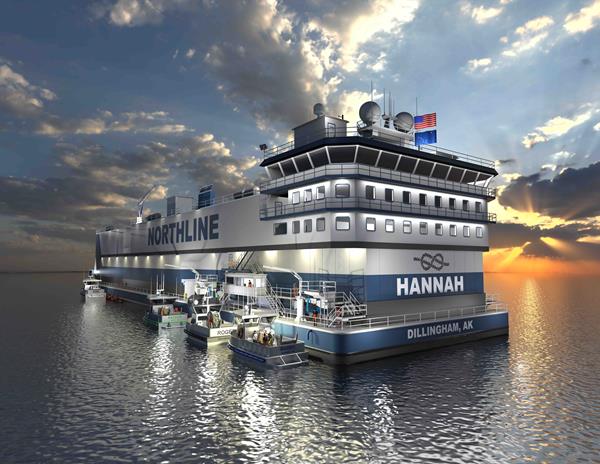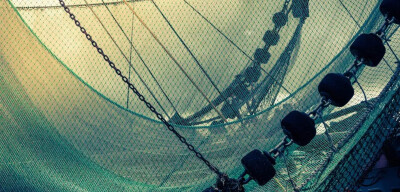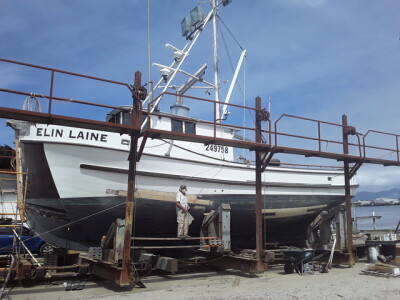A Gulf of Mexico barge will be converted to a salmon processing vessel for Bristol Bay in a project announced Nov. 30 by Stika, Alaska-based Northline Seafoods.
The “Hannah” will be “a one-of-a-kind vertically integrated vessel” and the “world’s most sustainable and efficient mobile commercial salmon processing platform,” according to a statement from Northline. The company plans to begin construction at the Port of Bellingham in Washington State in January 2023, and operate the Hannah in Bristol Bay during the commercial fishing season.
“We developed the Hannah to produce higher quality fish through a more efficient process that benefits both fishermen and customers,” said Northline CEO Ben Blakey. “This project is a continuation of Northline’s commitment to innovation and environmental sustainability in the fishing industry.”
The vessel will be built out of an existing barge hull that will be towed from the Gulf of Mexico to Washington State, then to Bristol Bay for fishing season. The planned processing plant’s state-of-the-art technology “will improve the salmon’s path from fishermen to customer by consolidating freezing, shipping, storing, and reprocessing operations,” according to Northline, which has produced a video rendering of the vessel.
The 400’x 100’ Hannah will deep freeze fish whole at the Bristol Bay fishing grounds at up to 750,000 pounds throughout daily, and carry the up to 14.5 million pounds of salmon back to Northline’s Pacific Northwest operations base in Bellingham. The fish will be stored, reprocessed and distributed year-round all from one vessel, the company says.
That will produce a final product delivered to market at a higher quality and with a more sustainable environmental footprint, including:
- 217,000 gallons for diesel fuel saved compared with typical fish processing and transportation methods.
- Every piece of the fish used, meaning less waste.
- Flash freezing means the salmon’s skin is its protection, minimizing the need for plastic packaging.
- Significantly reducing carbon emissions with fewer steps between fisherman and customer.
“We have a long history with and great respect for the Bristol Bay region. Everyone at Northline is excited about this next chapter for our company and our industry,” said Blakey.
Northline Seafoods recently closed on a $40 million USDA backed guarantee Food Supply Chain loan for the Hannah project that was made possible by the Biden Administration’s “Build Back Better” initiative, and financed by Greater Commercial Lending (GCL), which provides loans to businesses and organizations in under-served and rural communities. Northline also teamed with Zachary Scott, a Seattle-based investment banking firm with deep ties to the seafood industry, to raise $62.5 million of capital to support the company in its development.








